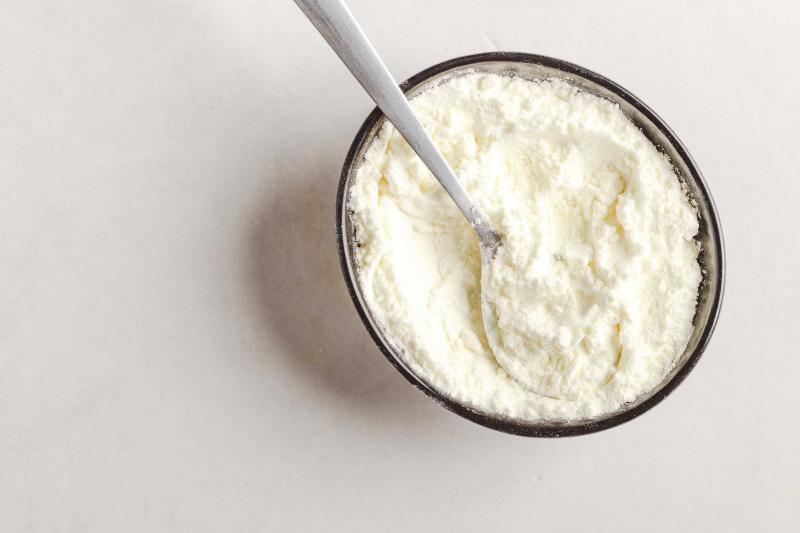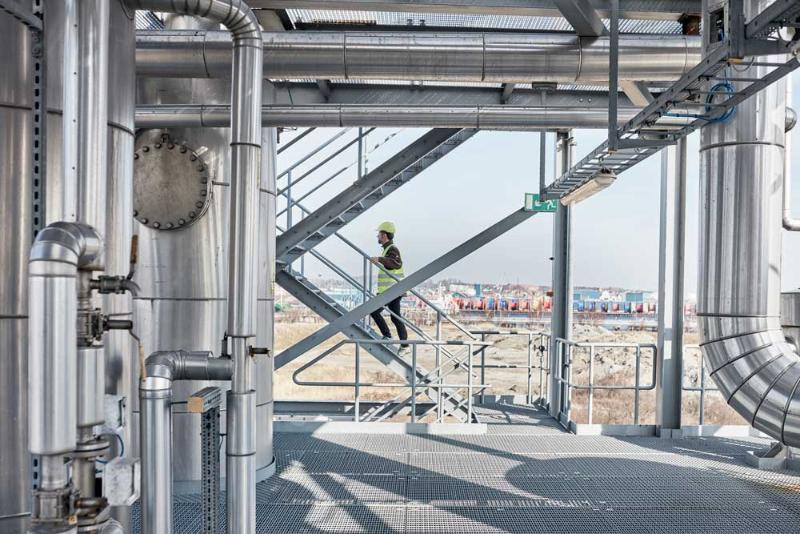You may not have heard of arabinoxylan, but it's about to transform your diet. COMET’s Arrabina will make food and beverages healthier for your gut
Andrew Richard is an expert in the field of biomass conversion. In 2009, he founded COMET to convert organic materials such as trees, plants, and urban waste in the most efficient way, into usable chemical product. But he soon realised that one of the byproducts of the company’s system might turn out to be the most important part.

“We were making a nice arabinoxylan from the process, which is dietary fibre with beneficial effects for the gut, overall health, and more,” Richard says. “The biotech industry has been trying to produce a purified and easy-to-use arabinoxylan for decades, and we did it.”
It’s a development that could have big implications for our digestion. Arrabina can be used in a wide array of foods and beverages, with no trade-offs in terms of taste, cost, or performance. It has a strong prebiotic effect, meaning that it feeds the microflora that in turn keep the human gut healthy.
“There is no other ingredient with similar performance on the market,” says Carmine Marzano, a senior bioeconomy specialist at the European Investment Bank, who worked on a financing deal for the company, which now calls itself COMET. “You can make a fizzy drink and claim that it can improve your digestion and enhance your fibre intake.”
COMET has opened a production facility in Kalundborg, Denmark, to produce Arrabina. Denmark “is a great place to source wheat and Kalundborg is a classic example of a circular economy-type facility,” says Richard. “This allows us to make our product as sustainable as possible.”
Healthier food and beverages with arrabinoxylan
Foods and beverages are an integral part of our everyday lives. From morning coffee to evening snacks, the choices we make deeply affect our health and well-being. Arrabina could hold the key to healthier choices. It can turn basic foods into nutritional powerhouses. With the addition of Arrabina, protein bars, energy drinks, and even gummies can support digestive health, help regulate blood sugar levels, and improve metabolism.
“We have been consuming arabinoxylan for thousands and thousands of years, because of its excellent tolerability by the gut,” says Richard. “We like to say that we have perfected nature’s best dietary fibre and made it into a very usable form.”

Most people around the world are eating less than 20g of fibre a day.
What sets Arrabina apart is its fully soluble powder form which dissolves clear and has no flavour, making it easy to incorporate into any food, beverage or supplement.
“In chocolate, you don’t even know that it’s there, and you also get some additional benefits like sugar reduction,” Richard says.
Europe’s first arabinoxylan facility
Producing a high yield of pure arabinoxylan can be very challenging. It’s isolated from grains and other biomass sources by breaking down its complex structure with a specialised and complicated process. The production of a single serving of soluble arabinoxylan typically requires a significant amount of processed whole grains. To get three grams of arabinoxylan, you need five cups of wheat bran cereals. But COMET has found a more efficient way to do it.
“We think we’re the only ones who can do it on a low-cost basis and in its pure form,” Richard says.
COMET’s Kalundborg facility will be the first of its kind in Europe and is expected to supply over 4 million kilograms of Arrabina annually. The European Investment Bank is supporting the company with a €40 million venture debt loan, signed in July 2023. The financing is made under InvestEU, an EU programme that aims to trigger more than €372 billion in additional investment in Europe between 2021 and 2027.
“When you are launching a new product like Arrabina, there is limited visibility on how the market will respond and evolve over time,” says Celine Rottier, a loan officer at the European Investment Bank. “With our support, COMET can take the initial commercial step and, provided Arrabina finds its market, continue to expand and roll out their product.”
Thanks to the EU financing, COMET can continue to look for ways to perfect its product. “It lets us test additional technologies,” Richard says, “to make our product better and even more sustainable.”
Turning wheat straw to energy
COMET’s new facility is a fine example of the circular economy and industrial synergies in action.
In 2021, Meliora Bio, an upcycling company, upgraded its current biorefinery using COMET technology, which turns straw into bioethanol, prebiotics, and lignin, an organic polymer. The biorefinery is part of a sustainable industrial park and utilises biomass-based steam, wind energy, and other green technology.

The sustainable industrial park applies a circular approach to production, in which one manufacturer’s residual output provides resources to another
“Every single thing that comes into the process ends up either as food, fuel, or energy,” Richard says.” We take crop leftovers from farm fields and transport them to our partner’s plant, where it’s processed. Using only water, steam, and gentle filtering, they extract arabinoxylan for Arrabina. They take the other components and send them downstream to produce ethanol.”
COMET also partners with farmers to source local wheat straw for its production. They use the part of the wheat that’s typically left in the field after harvest, providing another stream of revenue for the local farmers.
